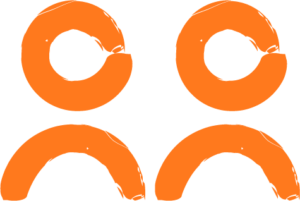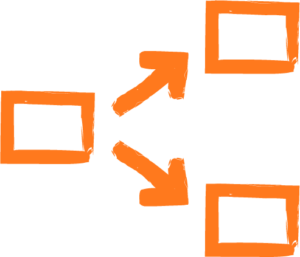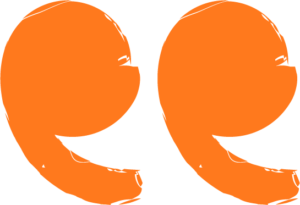A customized assessment approach : a multi-criteria evaluation, combining quantitative and qualitative indicators, based on the social mission of the actions evaluated and on key evaluation questions for the strategy, so that the impact assessment serves the project, and allows us to highlight the uniqueness and innovative nature of your approach.
Expertise
Our areas of expertise

Strategic support and advice for impact strategy
- Define the contours and challenges related to social issues ;
- Formalize an impact strategy in response to these problems ;
- Build a benchmark for indicators of performance, results, and impacts ;
- Support teams and stakeholders in the implementation of impact strategies.
+
-

Impact assessment
- Ex-post/a posteriori ;
- Upstream or cohort follow-up, with or without a control group ;
- Monetization of impacts through cost avoidance analysis ;
- … Mobilizing quantitative and/or qualitative methodologies,… (see below for the assessment methodologies used).
+
-

Methodological support for assessment
- Define an evaluation approach for the organization ;
- Formalize a detailed brief of the needs ;
- Leverage existing/collected data, strengthen or adjust an existing assessment protocol ;
- Acclimatize or competently develop the team’s/stakeholder’s assessment skills.
+
-
The tools and methodologies we use

The Theory of Change
The Theory of Change or “ToC” is a tool for formalizing impact strategy by modeling the hypotheses/connections of the causes and effects between the actions taken and the anticipated impacts on the targeted stakeholder(s).
This tool is the cornerstone of our interventions, especially when developing specific workshops to help organizations to co-build “their own” ToC, or to adjust it in the light of the assessment outcome.
+
-

Quantitative evaluation methodology
A posteriori, upstream-downstream, cohort follow-up, with or without control group.
This is usually a “closed” survey in the form of a questionnaire (paper, telephone, in person, or online) for validating – or invalidating – the achievement of the objectives pursued by the project. A questionnaire-based survey can be cross-referenced with data provided by structural reporting tools, for example, and/or with data from a comparative analysis, or with government data.
We always take a two-pronged approach to analyze the findings of questionnaires :
- a descriptive approach (percentages, averages, etc.) ;
- but also, and above all, an explanatory approach (inferential analyses), based on the hypotheses of relationships between different measures/indicators. Cross-checking information provides a better understanding of correlation, cause and effect, and the interaction among all indicators. We perform statistical tests to ensure the significance of the results and the reliability of the findings.
This expertise in data analysis allows an in-depth understanding of the mechanisms at work in an impact project (impacts present, depending on certain characteristics of the beneficiaries, timing, duration, and the intensity of a program, depending on the typologies/modes of action and their frequency, etc.). This type of analysis – coupled with a necessary discussion of the interpretation of the findings – allows us to identify levers for improving a project/program.
+
-

Qualitative assessment methodology
Open-ended questions for exploring and understanding the path taken; the beneficiaries’ (in)direct obstacles and successes associated with an action ; these are often semi-structured interviews, but they can also take the form of focus groups or participant observation, for example.
Quantitative and qualitative surveys can be combined as a logical complement and as a “triangulation of findings”.
+
-

Methodology for the assessment of avoided costs or cost-benefits
Estimate and highlight the savings that an initiative enables our society or a specific stakeholder to make by solving a social issue.
To learn more about this methodology, download the pertinent open-source Guide to the Assessment of Social Impact, designed in partnership with the Rexel Foundation.
NB : We do not use the SROI methodology.
+
-
Topics/issues we typically work on
- Training - occupational integration
- Education - youth
- Support for people in situations of social vulnerability (refugees, homeless people, people in social and occupational integration, etc.)
- Dependence and caregiving
- Health and disability
- Environment, circular economy
- Housing - habitat
- Social and legal support for people in or out of detention
- Policies/actions for changing citizens’ views/attitudes/behaviors about societal issues (migration/refugees, precariousness, security, detention, disability, etc.)
Organizational Procedures

Advice and Assessment

Coaching
A flexible and customized format.

Training
Formats ranging from half a day to several days of training, combining theoretical contributions and implementation (generally based on the structure’s project).
Our Convictions


A way to work collaboratively : immerse yourself in your activities, mobilize your team and your stakeholders to foster the emergence of a common and shared vision.

Watchword : pragmatism. In accordance with the expectations, resources and operational constraints, our support is based on inhouse skills to provide the best added value, with the constant concern of finding the best balance between the scientific accuracy of the methodologies deployed and feasibility on the ground.

